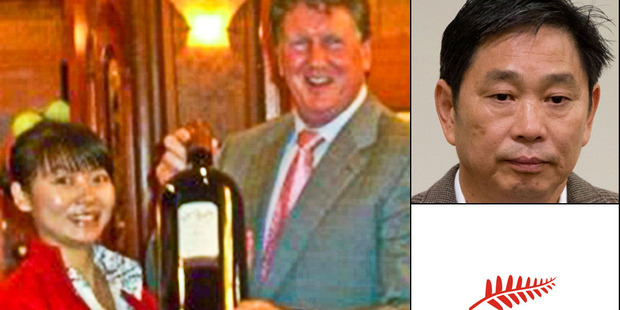 |
| The anatomy of Dirty Tricks. |
It looks like the powers that be on the Herald's editorial board are starting to realise that being a paid shill for the Key owned National Party is not as wise a move as they thought. Particularly as the realisation that the allegations fed from John Key and those around Donghua Liu are proving to be a quicksand that is sucking the already doubtful credibility of the paper as a crusading, principled record of fact away from it.
The self parodying editorial (27.6.14) was the beginning of the duck strategy and, today, the normally rabid Key adoration puffer, Fran O'Sullivan, began to drop the blame for the fiasco on Key's desire to extract utu on Cunliffe for daring to reveal the extent to which National Party cabinet ministers have been prepared to go in the quest for largesse from foreign property speculators and "investor immigrants". Her comments that:
It was lack of discipline when he recently fuelled the journalistic flames on the so-called Donghua Liu donations scandal from the comfortable distance of the US.
He appeared to have forgotten a basic rule of politics — don't fan the flames of scandal unless you are sure where it will finish up. It's understandable that Key was tempted to indulge in some gotcha politics himself after a torrid month where he had to put Judith Collins on Cabinet leave after the Oravida affair and ask for Maurice Williamson's ministerial resignation after he intervened in a police matter involving the Chinese business investor.
It must have been pure utu to watch while the proverbial was thrown back all over Labour after Immigration Minister Michael Woodhouse informed Key there was an 11-year-old pro forma letter in the files that showed Cunliffe wrote to authorities on Liu's behalf over his residency application.
The Prime Minister wasn't the direct source of the Liu "revelations" (I use that word advisedly as many of the more hyperbolic Liu claims have since proved to be a mirage).
Herald investigative journalist Jared Savage, who broke the story which led to Williamson's resignation, had already sought Liu's immigration file under the Official Information Act. But it is instructive in that it was sources close to National who shopped the story of Liu's anonymous donations to Labour elsewhere after Woodhouse had accessed the file.
National has not played a straight bat on this story.
Woodhouse has yet to explain why he initially told porkies by denying he had informed Key about the Cunliffe letter — something that may have been literally true but skated over the fact he had told the prime minister's staff about the letter (and one from former Labour MP Chris Carter) and his office had provided both letters to Key's office.
While Cunliffe was obviously stitched up over the Liu letter, the political donor's subsequent "misstatements" have left thoughtful people wondering whether it was indeed Labour that had proven tricky — as National's meme invites us to believe — or the governing party.
reveal some deep disquiet emerging within the party political PR machine behind Key and the National Party.
 |
| "Smile, Wave, brain-fade, scuttle and run" The stategists in confrence? |
The history of the Donghua Liu scandal is revealing, as commented on in earlier postings and by other commentators, because of its obvious links to the scandal spreading blog sites closely connected to the Ninth Floor of the Beehive and the readiness of The Herald to swallow without due diligence the statement given it by, to quote Fran O'Sullivan, those close to National ... after Woodhousehad accessed the file.
And, now, as the allegations begin to unravel and there is colder, closer and more focused examination of the apparent deliberate anti-Labour campaign being waged by the opinionista in The Herald the classic Key strategy of "smile, wave, brain fade, scuttle and run" is being followed in an attempt to extricate the news-sheet from the mess it helped create.


